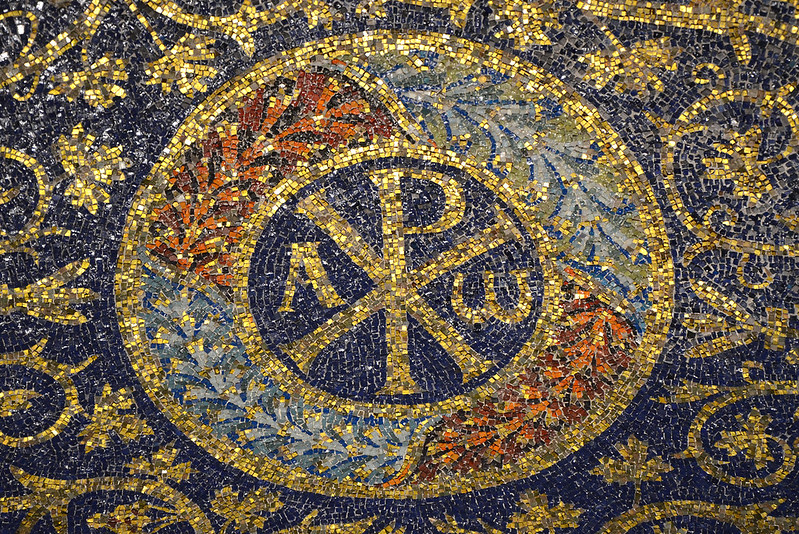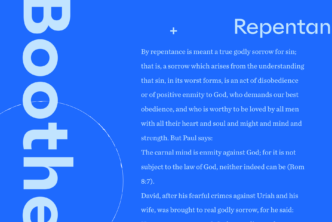We call ourselves “Christians.” This name was first given to us in the city of Antioch (Acts 11:26). It distinguished the disciples of Jesus—those who professed him to be the Messiah or the “Christ”—from other Jews of the day.
Christians continue to be identified by the one they follow, Jesus Christ. The title of “Christian” distinguishes Jesus’s followers from those who believe he was simply a moral teacher or a prophet like any other. It’s a badge that followers of Jesus have worn proudly for two thousand years, even if wearing it means poverty, social ostracization, political oppression, or even the death of martyrdom.
Christology lies at the very heart of our faith because it defines for us who we are speaking of when we speak of Jesus Christ. And so it quite literally defines us when we say we are Christians!

Christology of the church
The great historical expression of orthodox Christology is found in the definition of Chalcedon. While the Council of Nicaea (AD 325) had affirmed that “One Lord Jesus Christ” is “very God,” “of the same substance” (Greek, homoousios) with God the Father, the church continued to wrestle with what it meant that Jesus “was incarnate by the holy Spirit of the virgin Mary, and was made man.”
It was agreed that Jesus was God the Son. But was he really human? Did he have a human nature, with all that entails, both body and soul? If so, then what was the relationship between his human nature and his divine nature?
At the Council of Chalcedon (AD 451) the Christian church recognized that Jesus is “truly God and truly man.” It affirmed “one and the same Christ, Son, Lord, Only-begotten, to be acknowledged in two natures”; namely, his divine nature and his human nature.
These two natures, they affirmed, are inseparable since they subsist in the indivisible unity of one eternal person: “the same Son, and only begotten, God the Word, the Lord Jesus Christ.” This Christian doctrine is called the “hypostatic union”—the union of Christ’s divine and human hypostases or natures. Nevertheless, Jesus Christ’s humanity and deity remain two distinct natures: there is not a blending of two natures such that a third thing, neither fully God nor fully man, is created.
The early church fathers at Chalcedon carefully balanced two truths that they found equally in Scripture: that Jesus is truly God and that he is also fully Man. They avoided the tendency of the Apollinarians to emphasize Christ’s deity at the expense of his humanity. They also avoided the error of Nestorianism, which separated Christ’s divine and human natures.1
The faith that Christians profess is not based on a theological construct that was built up and acquired new and innovative traits over millennia. Our faith is not in an abstract set of principles or doctrines. It is rather founded upon a historical person—a divine person, the Son—who assumed our human nature in history. It is furthermore founded upon the long expectations revealed in the Old Testament and fulfilled and then explained in the New.
Related article: “3 Terms about the Trinity You Should Know & How We Got Them”
What does “Christ” mean?
The word “Christ” is from the Greek christos, which means “anointed one.” The Old Testament Hebrew equivalent is mashiah, often rendered “messiah.” We need to understand the biblical background of anointing(s) before we can understand Christology and what it means for Jesus to be the Anointed One.

In Scripture, the act of anointing usually meant the placing of oil on someone’s head to designate him to a particular office.
For example: priests of Israel were anointed at their ordination. The first anointing of a person mentioned in the Bible is Aaron and his sons when they were appointed as priests in the tabernacle (Exod 28:41; 40:12–15; Lev 8:12). Their anointing marked them out as holy to YHWH and dedicated to his service in the sanctuary.
At the end of the period of the Judges, when priest and Levite alike had failed the people of Israel,2 Hannah anticipated the anointing of a king in her song that prefigured Mary’s Magnificat of Luke 1:46–55. Her messianic expectations (1 Sam 2:10) came to fruition when her son, the prophet Samuel, anointed David (1 Sam 16:13).
The relationship of YHWH to the anointed king is presented in the most exalted of terms. Not only is the king set apart for an office as a priest was, but God calls him his “son” (Ps 2:2–7). To be an anointed king was to be a son of God and to have a familial covenant relationship to him.
Prophets were likewise anointed in Israel (Ps 105:15; 1 Kgs 19:16).
So, following the trail of anointing, we can trace in the Old Testament the pattern of the threefold office of Christ: Priest, King, and Prophet.3
We should also notice that it is not only persons who were anointed in the Old Testament, but also holy objects that were to be used in the sanctuary, and even the sanctuary itself. Moses was instructed to anoint the tabernacle along with all its utensils (Exod 30:26; 40:9–11; Lev 6:20; 7:36; 8:10). The sanctuary was therefore bound by anointing to the priest who served within it. Both were to be holy to YHWH (Exod 28:36–38).
Anointing with oil is biblically connected to God’s Spirit (1 Sam 16:13; Isa 61:1), who marks a person or object as holy, set apart for God’s service in specific ways. It is also the Spirit who approves and empowers someone for office.
Christ fulfills the Old Testament anointings
This rich background of anointing undergirds how the New Testament conceives of Jesus when it calls him “Christ.” It is Jesus upon whom the Spirit rests in fullness, of whom the voice of the Father declares “You are my Son; with you I am well pleased” (Mark 1:10–11).
When Peter declares to Jesus, “You are the Christ, the Son of the living God” (Matt 16:16), he was declaring that Jesus is the Davidic king. When Jesus read from the Isaiah scroll in the Nazareth synagogue, he announced that the year of the Lord’s favor had come because he was the anointed one, filled with the Spirit for the mission Isaiah had foreseen (Luke 4:17–21).
The full meaning of the Old Covenant anointings, as well as the messianic mission of Isaiah 61:1, could not be fulfilled by a mere man.4 Yet our Savior needed to be just as human as we are to identify with the people he came to save. It is in his humanity that God the Son could bear our sins to save humanity (Col 1:21–22; 1 Pet 2:24).
Gregory of Nazianzus said, “That which he has not assumed he has not healed; but that which is united to his Godhead is also saved” (Ep. 101.5). Without the incarnation, we have no hope of salvation.
Thus, “The Word became flesh” (John 1:14). God’s revelation of himself through the Old Covenant anticipated this fullest revelation–God the Son in our humanity (Heb 1:1–2). No one has seen God, but the Son has revealed God to us (John 1:18) because he is the image of the invisible God (Col 1:15). He has made the invisible visible.
Jesus Christ, fully God and fully man, is the fulfillment of the expectations found in the types and shadows of the Old Covenant anointings. He is supremely the Anointed, the Messiah of God, our great High Priest who offers the sacrifice of himself (Heb 4:14; 9:14), our King of kings who conquers sin and death, and who has received authority over even the heavenly realms (1 Cor 15:22–26; 1 Pet 3:22), our Prophet, like Moses, filled with the Spirit and granting us a measure of the same (Num 11:17; Acts 3:20–23; John 20:22; Acts 2:16–18). The physical body of his humanity is the Temple of God, destroyed in death but raised up again in three days (John 2:18–22).
Your place in Christ(ology)
And yet, that is not all there is to the story. Christians—those identified with the name of Jesus Christ—are united to him in each of the roles just named.
Because God the Son and Word has fully assumed our human nature into his person, humanity is raised up to participate in the fellowship of God through him. We may press Gregory’s dictum further: What he has not assumed he has not glorified. He who called us “by his own glory and excellence” also makes us “partakers of the divine nature” (2 Pet 1:3–4).
The glory and honor intended for humanity from creation can only be ours when shared with us by the incarnate Son of God (2 Cor 3:18; Heb 2:5–11). We could not have access to God or communion with him had the eternal Son not raised our human nature to the heavenlies (Eph 2:4–6; Heb 4:14–16).
In Christ, we also are priests, kings, and prophets (1 Pet 1:9; Heb 12:28; Rev 1:6).5 We are his body, his holy and anointed temple of living stones (Eph 5:23; 1 Pet 1:5; 1 Cor 6:19; 1 John 2:20, 26–27). So we are to offer our bodies as living sacrifices (Rom 12:1). We are sons of God by adoption (Gal 4:6–7), seated with Christ in the heavenly places (Eph 2:6) and called to be victorious over Satan (Eph 6:11–13; Rom 16:20). And we are called to declare the gospel abroad and call the world to repentance (Matt 28:19–20).
That is the whole essence and aim of Christology: communion with God through Jesus Christ and participation in his continuing work in the world.
For further reading
Mobile Ed: BI314 Matthew’s Use of the Old Testament: Kingdom and Christology (4 hour course)
Regular price: $149.99
Mobile Ed: BI111 Typological Hermeneutics: Finding Christ in the Whole Bible (4 hour course)
Regular price: $149.99

Christology, Ancient & Modern (Explorations in Constructive Dogmatics)
Regular price: $22.99
Mobile Ed: AR151 Archaeology in Action: Jesus and Archaeology (3 hour course)
Regular price: $109.99
Related articles
- Who is Jesus? Answering Life’s Most Important Question
- 3 Trinitarian Terms You Should Know & How We Got Them
- Ever Traced the Links between Jesus & Moses? 5 Surprising Commonalities
- The Spirit of the Lord Is upon Me: How This Prophecy Applies to Jesus
- For a full discussion, see Robert Letham, Systematic Theology (Wheaton, IL: Crossway, 2019), 492.
- Judges 17–19 records the catastrophic failure of the Levites to shepherd Israel in the ways of YHWH.
- The threefold office is typically listed in order of “Prophet, Priest, and King,” but here I follow the biblical progression of anointings.
- Isaiah 60–61 is marked by the ambiguity of the speaker, sometimes with God speaking, and sometimes with an unnamed Anointed speaking.
- In Numbers 11:29, Moses wishes that all of God’s people were prophets. That his desire is fulfilled in the New Covenant requires more development to demonstrate.








